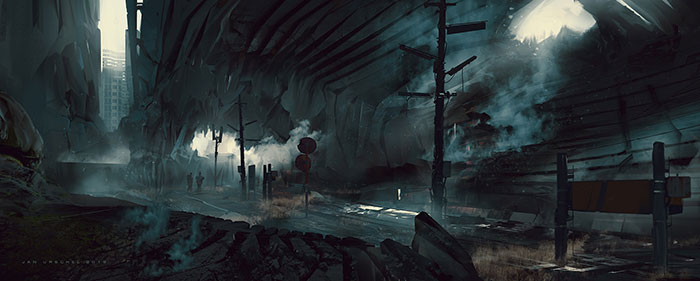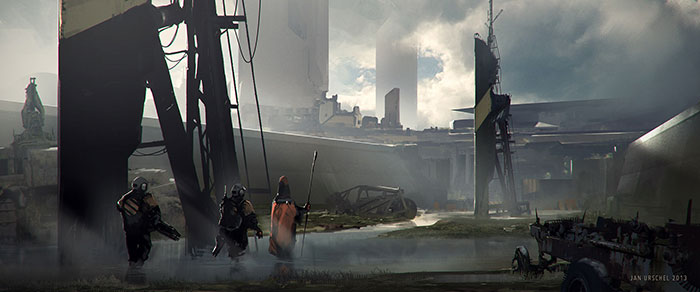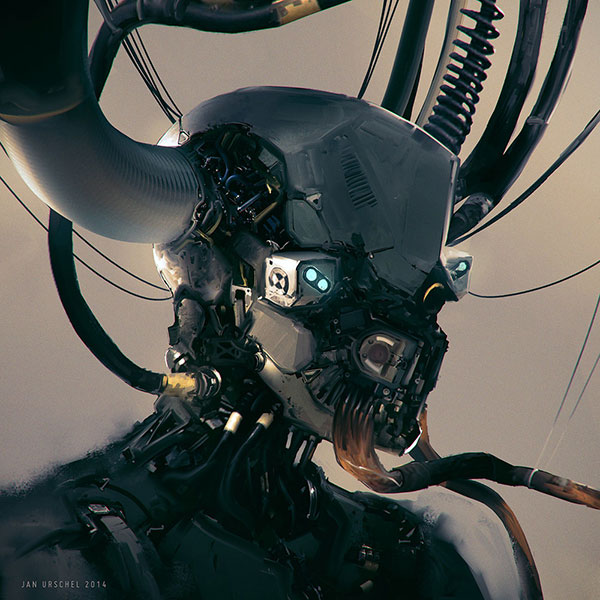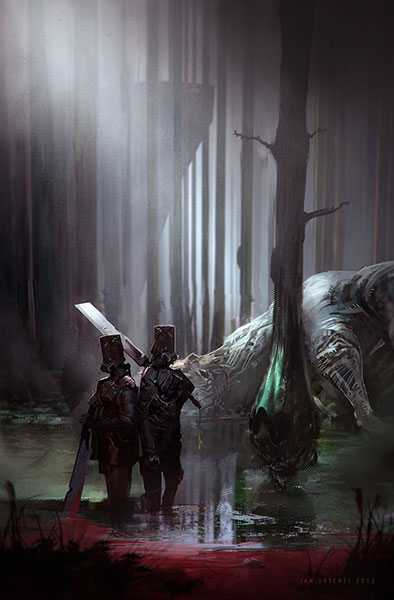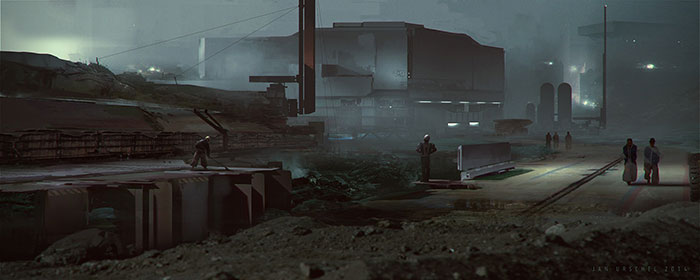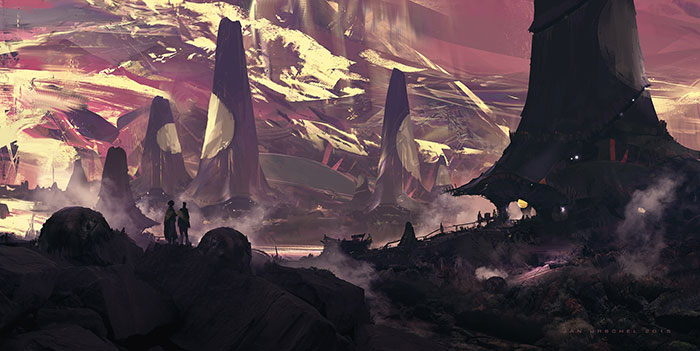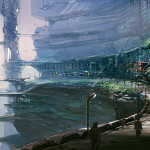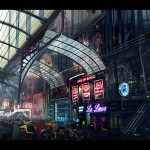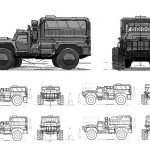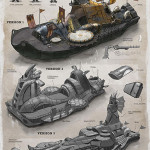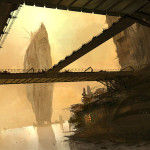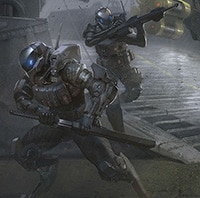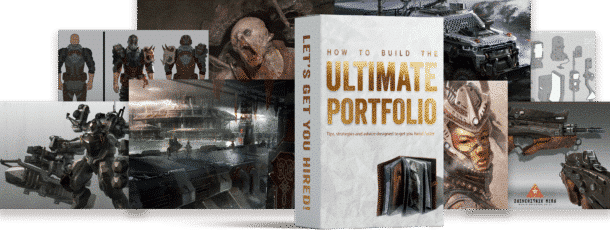JAN URSCHEL IS A FREELANCE CONCEPT DESIGNER AND ILLUSTRATOR WORKING IN THE ENTERTAINMENT INDUSTRY, DESIGNING FOR FEATURE FILMS AND VIDEO GAMES.
Website: www.hendrix-design.com
Jan Urschel’s current portfolio examples
In this interview, we asked Jan Urschel specific questions about what it’s like to be a concept artist in the entertainment industry, dispel a few common misconceptions that aspiring artists tend to have about the field, discuss his educational background, how he markets himself in the industry and more. Here’s what he had to say:
HOW OLD WERE YOU WHEN YOU DECIDED TO COMMIT TO BEING AN ARTIST?
When I decided to seriously get into concept design, I was 28 years old. I was inspired by great artists like Moebius and Syd Mead and being generally unsatisfied with my career so far.
A lot of students seem to think concept art is all about the pretty stuff they see on social media, which they tend to imitate without going through learning fundamentals. While a traditional education is not necessary, these days it is still important to learn the basics.
I [also] feel that for some strange reason (concept) artists are seen as morally superior beings by students/fans/even peers, which leads to disappointments if the artists don’t behave that way all the time. Artists are normal people like anybody else, some are nice, some are not.
CAN YOU SHARE A PERSONAL STORY, ABOUT A HARD LESSON THAT YOU LEARNED THAT COULD HAVE BEEN AVOIDED, HAD YOU BEEN BETTER INFORMED?
In the beginning, I was [a] very inexperienced freelance artist and blamed the client for everything. Looking back, this was a pretty bad thing, but I wouldn’t want to avoid these kind of mishaps. They all help make you better at what you do, even if in the short run you lose clients/money.
Jan Urschel’s student work examples from his time attending FZD
HOW VALUABLE IS IT GETTING AN EDUCATION FROM A UNIVERSITY OR COLLEGE BE FOR ASPIRING ARTISTS WHO WANT TO BREAK INTO THE ENTERTAINMENT INDUSTRY?
These days online materials are abundant and I feel a traditional education at a school is not necessary anymore. I urge students to look far beyond learning how to draw and to design. Nothing has been more helpful to me then spending five years getting my masters degree in Japanese studies. Not that you have to go to such extremes, but learning languages, cultural studies, living/studying abroad is absolutely essential I think.
WERE YOU DISCIPLINED AND/OR FOCUSED IN SCHOOL?
At the time I studied at FZD I was old enough (and invested enough of my own money) to feel the urgency and muster up the discipline to get the most out of the course.
DID YOU HAVE ANY OUTSIDE HELP PUSHING YOU ALONG WITH YOUR TRAINING? FROM A MENTOR, PASSIONATE TEACHER? FAMILY? FELLOW STUDENT?
Some financial support, but my parents are not artists, so they did not quite understand what I was doing.
WHAT ARE YOUR LISTS OF DO’S AND DON’TS TO BUILDING A STRONG PORTFOLIO?
Short, to the point. Only your strongest work and of course work that is somewhat tailored the client in question.
IF YOU COULD GO BACK AND RE-EVALUATE YOUR OWN GRADUATING PORTFOLIO, HOW WOULD YOU DO? WHAT DO YOU THINK MADE YOUR PORTFOLIO STAND OUT? WHAT COULD HAVE BEEN DONE BETTER?
I focused maybe a bit too early on environments which is what I always wanted to do, so my character work suffered a lot from lack of knowledge in anatomy, etc.
HOW DID YOU HUNT DOWN YOUR FIRST JOBS IN THE INDUSTRY?
I sent out hundreds of job applications to companies all around the world which resulted in 3 interviews of which one worked out in the end.
WHAT IS YOUR MUST-HAVE LIST OF BOOKS, APPS, TRAINING MATERIALS, ETC. FOR CONCEPT ARTISTS AND ILLUSTRATORS?
Besides some fundamental books like the ones from Scott Robertson and James Gurney, I recommend avoiding art books from movies/games and rather focus in other disciplines: novels, history books, magazines/books about architecture, fashion, design etc.
DO YOU HAVE ANY PODCASTS OR WEBSITES YOU VISIT REGULARLY FOR INSPIRATION OR REFERENCE
I’m inspired by stories and ideas outside of the entertainment industry. I listen to Jazz a lot so the “Jazz and Beyond” podcast is fantastic. Besides that I listen to Monocle Weekly for current affairs, design and generally things I would otherwise never hear about.
This concludes our interview with Jan Urschel. For further reading, Check out Jan Urschel’s Words Of Wisdom to aspiring artists. (coming soon)
All images used with permission by the artist. ©Jan urschel


